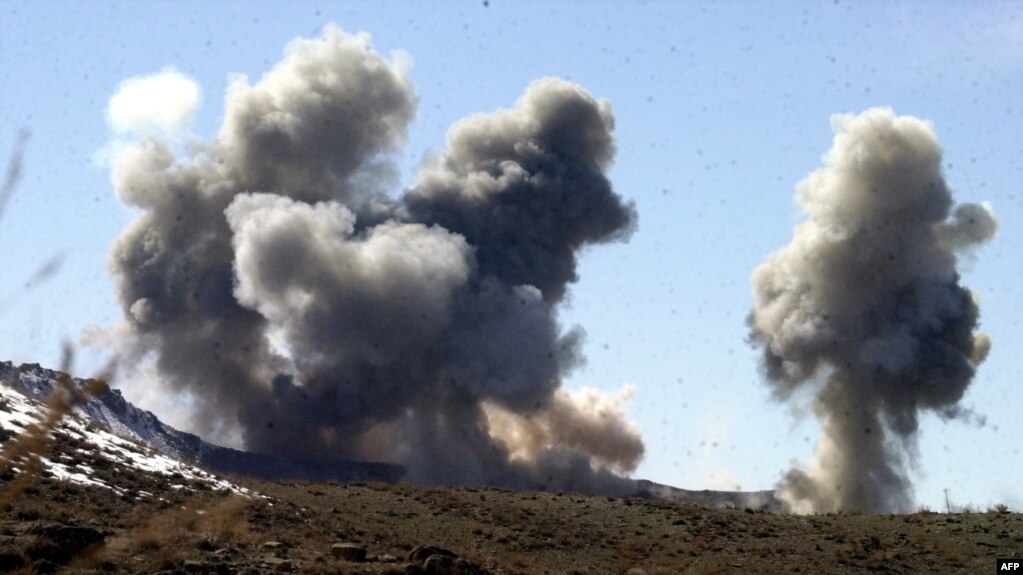On Anniversary of 9/11 Attacks, US Says Al-Qaida in Afghanistan all but Dead

More than two decades after al-Qaida operatives slammed passenger jets into New York’s World Trade Center, the Pentagon and a field in Pennsylvania, America’s war on terror has left the terror group practically impotent, unable to strike the U.S. homeland, according to the latest U.S. intelligence assessment.
“Al-Qaida is at its historical nadir in Afghanistan and Pakistan, and its revival is unlikely,” National Counterterrorism Center Director Christy Abizaid said in a statement marking the 22nd anniversary of the September 11, 2001, terror attacks on the United States that killed nearly 3,000 people.
“It has lost target access, leadership talent, group cohesion, rank-and-file commitment, and an accommodating local environment,” Abizaid added, calling the degradation of al-Qaida’s core an “example of what the United States and its allies and partners have achieved in the years since those terrible attacks.”
The assessment also aligns with previous statements by other top-ranking U.S. officials.
In March, the Department of Homeland Security’s counterterrorism coordinator said another September 11th-style attack on the U.S. would be “almost inconceivable.”
:
Major Foreign Terror Attack on US ‘Almost Inconceivable’ Right Now
And this past June, a senior administration official told VOA that even the U.S. withdrawal from Afghanistan in August 2021 has failed to rejuvenate the terror group.
Al-Qaida “simply has not reconstituted a presence in Afghanistan,” the official told VOA, speaking on the condition of anonymity in order to discuss the latest U.S. intelligence.
Destroyed Humvess used by the US Army during the war against the Taliban in Afghanistan are seen stacked to be sold as scrap metal in Kandahar City, Afghanistan, June 12, 2023.
SEE ALSO:
UN Report Warns Al-Qaida, Islamic State Growing in Afghanistan
Only not everyone is as optimistic as the U.S. about the downfall of al-Qaida in Afghanistan.
A June report by the United Nations, based on member state intelligence, warned that Afghanistan has again become a haven for al-Qaida, which has expanded its footprint from just several dozen members to as many as 60 senior officials, in addition to some 400 fighters.
The U.N. report further warned that al-Qaida has established training camps in at least five provinces and safe houses in another four.
U.S. officials who spoke to VOA at the time described the U.N. assessment as “out of whack” and insisted that the military and intelligence agencies have the right capabilities in place to see any potential al-Qaida revival.
Since then, other senior U.S. officials have similarly rejected the idea that al-Qaida, even under the Taliban, has been able to reestablish a foothold.
“Remember what I said about Afghanistan? I said al-Qaida would not be there. I said it wouldn’t be there. I said we’d get help from the Taliban,” U.S. President Joe Biden said in response to a question on Afghanistan in July.
“What’s happening now? What’s going on?” Biden said at the time. “Read your press. I was right.”
Some analysts, though, are skeptical of sounding the death knell for al-Qaida in Afghanistan, even if the terror group may not be currently capable of launching the type of spectacular attacks that first gained it notoriety.
“Even if the threat from al-Qaida now is not as obvious, or not as salient as it once was a decade and a half ago, it hasn’t gone away completely,” said Bruce Hoffman, a senior fellow for counterterrorism and homeland security at the Council on Foreign Relations.
“Al-Qaida sees its struggle as divinely ordained, as commanded by their deity and therefore, it’s not for mere mortal men to lay down their arms and stop fighting,” Hoffman told VOA. “They now have the opportunity in Afghanistan with the Taliban in power to regroup and rebuild.”
Retired U.S. General David Petraeus, who served as the commander of U.S. forces in South Asia and then as director of the CIA, likewise told VOA that al-Qaida should not be underestimated.
“They don’t have a kind of international reach yet, similar to what al-Qaida eventually developed, of course, when they carried out the 9/11 attacks,” Petraeus said.
“That doesn’t mean that we shouldn’t keep a very close eye on them,” he said, adding, “I’m very confident that we are tracking to the extent that we can.”
Yet even top U.S. military officials concede the ability to track al-Qaida in Afghanistan, along with its rival, the Islamic State Khorasan Province, is not what it once was.
“Our intelligence is degraded,” the commander of U.S. Central Command, General Michael “Erik” Kurilla, told lawmakers in March on the impact of the U.S. withdrawal on counterterrorism efforts.
“I believe we can see the broad contours of an attack [plot],” he said. “Sometimes, we lack the granularity to see the full picture.”
In her statement marking the anniversary of the 9/11 terror attacks, the National Counterterrorism Center’s Abizaid cautioned that despite the progress against al-Qaida and other groups, “The threat of terrorism is not gone.”
“Every week, threat-related intelligence lands on my desk,” Abizaid said. “In the face of a persistent terrorism challenge, the United States Government must sustain a nimble, action-oriented counterterrorism posture, even as other priorities take center stage.”






